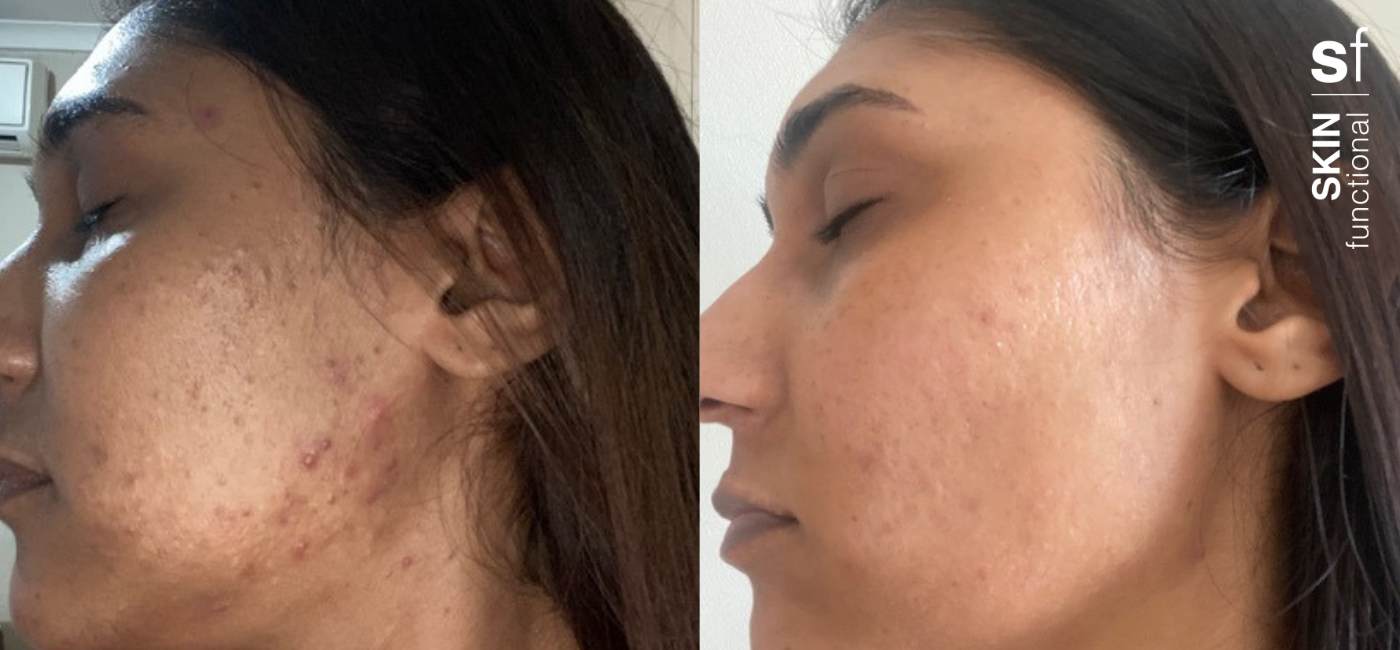
FREE SHIPPING FOR ORDERS OVER R500 WITHIN SOUTH AFRICA
Free shipping for orders over R500
FREE SHIPPING FOR ORDERS OVER R500 WITHIN SOUTH AFRICA
Free shipping for orders over R500

You most likely already know that sunscreen is a non-negotiable part of your everyday skincare regimen, but what you might not know is that there are two different categories of sunscreen filters – both of which work very differently and have unique advantages and disadvantages. We explain what chemical and mineral filters are, and how they help protect against sun damage.
Organic filters (Often referred to as Chemical Filters)
Organic filters protect the skin against the sun’s UV damage. They act like a sponge, absorbing UVA and UVB rays. Through a chemical reaction, the sunscreen dissipates the UV rays. This means that your skin is protected because the intensity of the UV rays are significantly reduced, therefore their effects are greatly reduced too.
Pros
Organic sunscreen filters are colourless and leave no white cast or residue on the skin. Generally, they are lighter in texture, spread easier and feel similar to using a moisturiser.
Cons
These organic sunscreen filters can sometimes cause irritation, particularly in people prone to this.
Organic sunscreen filters are absorbed into the upper, outer layers of the skin (the dead skin layer) before they offer protection, which is why you need to apply them at least 15 to 20 minutes before being exposed to the sun’s rays.
Common filters
Some of the most commonly used organic sunscreen filters that you might find listed in the product ingredients are Octylcrylene, Avobenzone, Oxybenzone and Homosalate.
Mineral Sunscreens
Also known as physical sunscreen filters (because they provide a physical barrier between your skin and the sun’s rays). These physical filters are minerals (zinc oxide, titanium dioxide and iron oxide) that block out UV rays. The filter reflects and absorbs sun rays, preventing you from burning. Think of them as millions of tiny mirrors resting on the surface of your skin, bouncing away harmful UV rays.
Pros
Unlike organic sunscreen filters, mineral sunscreen filters sit on the surface of the skin, making it immediately effective from the moment you apply it. And Because they sit on the surface of the skin, they’re less likely to cause irritation. In a recent study looking at the mechanism of mineral sunscreen function, it was shown that only 5% of their effect was due to energy reflection and 95% is due to their ability to absorb photo radiation. In truth it is not 100% call mineral filters pure reflectors of UV radiation.
Cons
Mineral sunscreen filters can sometimes leave a white or greyish layer/cast on the skin, which is not ideal for darker skin tones.
Common filters
The two most commonly used mineral filters are Titanium Dioxide – which protects against all UVB rays and the majority of UVA rays – and Zinc Dioxide, they have a peak absorption at around 370 – 380 nm which means longer wave length uVA and visible light are not fully protected against with these filters.
So, which sunscreen is best?
At the end of the day, “the best” sunscreen is simply the one you’ll use consistently. When applied correctly, both chemical and mineral sunscreen filters are highly effective in preventing sun damage. However, SKIN functional uses chemical filters in our sunscreen SPF50 to ensure there is no white cast, and it feels incredibly light on your skin. Best of all, it suitable for all skin types.
We will give you the right amount of love!
From expert advice, specials and new products, be the first to know.
No spamming, we promise!






Click on the button below and choose 2 free gifts.
Hurry, while stocks last!